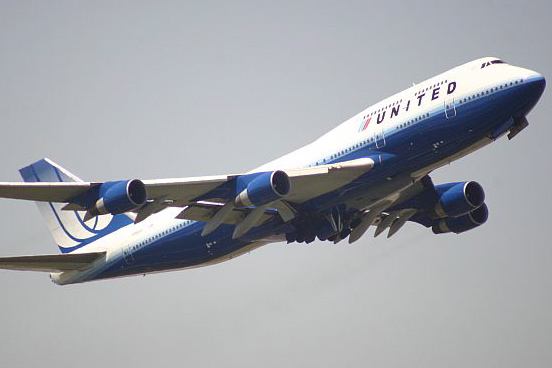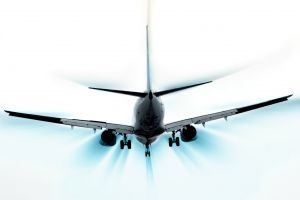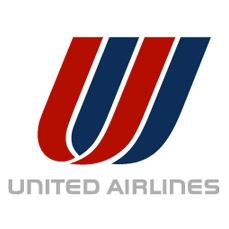 The impending merger between Continental and United is big news in the travel industry, and naturally was the lead topic on Peter’s radio show this past weekend.
The impending merger between Continental and United is big news in the travel industry, and naturally was the lead topic on Peter’s radio show this past weekend.
Check out his conversation on this controversial topic with “The Middle Seat” columnist Scott McCartney from The Wall Street Journal and Ed Perkins of SmarterTravel.com.
Peter Greenberg: It’s not the world’s biggest surprise that the merger happened because somebody was gong to merge. It might have been US Airways and United because United was asking everyone to take them to the dance, and finally somebody did.
Scott McCartney: It certainly wasn’t a big surprise. United and Continental had been flirting for a long time. They decided last year that they were going to date and began code sharing. That’s when Continental joined Star Alliance. They put a lot of stuff together for travelers, and now they’ve decided to move in together.
[full disclosure: Continental is an advertiser on PeterGreenberg.com]
 PG: All right, now before I go to the bridal registry, every time a bank announces a merger with another bank, they say, “No branches will be affected.” And two weeks later I’m on my hands and knees begging an ATM machine because I can’t find anybody to talk to. Other than the obvious synergies they’re spinning about how great this is going to be, what flags does this raise for you?
PG: All right, now before I go to the bridal registry, every time a bank announces a merger with another bank, they say, “No branches will be affected.” And two weeks later I’m on my hands and knees begging an ATM machine because I can’t find anybody to talk to. Other than the obvious synergies they’re spinning about how great this is going to be, what flags does this raise for you?
SM: I think it raises some flags. The reality for travelers is this is what has to happen in the airline business. There is this strange conflict in the business in which what is good for airlines is not necessarily good for travelers, and what’s good for travelers is not necessarily good for airlines. I think this is a classic example. Airlines in general need to raise fares so they can start making money again, and that can be tough on travelers. I think we will see some higher fares; we’ll certainly see service cuts in a lot of places. Ultimately, I think the people who really benefit from airline mergers are the lower-cost carriers who can move in and replace some of that service that gets pulled back, and come in at attractive rates when some of the guys raise their prices too high.
Learn more with Peter’s CBS Evening News With Katie Couric report: Continental & United Merger: What It Means for Consumers
PG: It’s interesting because even if this merger hadn’t been announced, the airlines have already parked about 1,000 planes in the deserts of New Mexico, Arizona and California. If you do the math on that, that’s roughly the equivalent of taking one and a half major US airlines out of business already.
 SM: That’s right, just park United Airlines in the desert. It’s really quite incredible. Another thing is I think there’s going to be a real seat squeeze this summer. Capacity is down and travel is really picking up. Prices have been going up quite a bit for the summer, so this may just be the start of a period where airline seats are at a premium. As for the planes that are parked in the desert, a lot of them aren’t coming back. If they do come back it is a slow process. The airlines have to hire crews, train crews and refurbish the planes to get them back into shape. That’s expensive, and they are unwilling in this environment, where things are vulnerable, to make that investment. So I think capacity is going to be reduced for a long time.
SM: That’s right, just park United Airlines in the desert. It’s really quite incredible. Another thing is I think there’s going to be a real seat squeeze this summer. Capacity is down and travel is really picking up. Prices have been going up quite a bit for the summer, so this may just be the start of a period where airline seats are at a premium. As for the planes that are parked in the desert, a lot of them aren’t coming back. If they do come back it is a slow process. The airlines have to hire crews, train crews and refurbish the planes to get them back into shape. That’s expensive, and they are unwilling in this environment, where things are vulnerable, to make that investment. So I think capacity is going to be reduced for a long time.
Learn more: United Pilot Says Goodbye to the 747.
PG: Well let’s welcome another traveler on our show today, Ed Perkins, a contributing editor of SmarterTravel.com. From a consumer point of view, how did this merger rate with you?
 Ed Perkins: Well, I don’t like it. Obviously the ideas of lost service and higher fares don’t appeal to me. My major worry, however, is a little different. Now that load factors are so very high and seats are scarce, as Scott pointed out, what I’m worried about is when an airline gets that big … what happens when it goes on strike? Those of us with long memories remember the United strike back in 1985 caused quite a bit of chaos in the airline industry, and I just don’t like to see any single airline have that much of the market in the domestic sphere.
Ed Perkins: Well, I don’t like it. Obviously the ideas of lost service and higher fares don’t appeal to me. My major worry, however, is a little different. Now that load factors are so very high and seats are scarce, as Scott pointed out, what I’m worried about is when an airline gets that big … what happens when it goes on strike? Those of us with long memories remember the United strike back in 1985 caused quite a bit of chaos in the airline industry, and I just don’t like to see any single airline have that much of the market in the domestic sphere.
PG: I remember in the 1990s and American Airlines went on strike, then-President Clinton weighed in at the last minute. Basically there was an injunction forcing them to stay at work because of national economic interests.
Learn more about the United-Continental merger from a Chicago perspective in the second hour of Peter’s radio show: United/Continental Merger & St. Lucia Jazz.
EP: Well, that’s right, but that can only go on for too long. I mean the Railway Labor Act applies to airlines as well, and there are all kinds of delaying tactics that the federal government can use. But at some point these people do have a last-resort ability to strike if they can’t settle something.
 PG: Let’s talk about the one elephant in the room that no one is talking about: frequent-flier programs. They have to be devalued in a process like this.
PG: Let’s talk about the one elephant in the room that no one is talking about: frequent-flier programs. They have to be devalued in a process like this.
EP: I don’t think so. The one thing you can take to the bank is that these two airlines will combine their frequent-flier programs and nobody will lose a mile.
PG: I’m not talking about losing a mile. How about using a mile?! If there’s a seat squeeze and there are 23 percent fewer available seats for revenue, how does Mrs. Schmidlap redeem her 25,000-mile award to go to Smyrna Beach?
Learn more in our Mileage & Rewards Programs section.
EP: She has a tough enough time doing that right now.
PG: I’m just saying it’s going to get worse.
EP: You’re right.
 PG: I know the airlines don’t ever want to end these programs because they make so much money for them. In cases I’ve been looking at, the airline frequent-flier programs make more money than the airlines themselves. At a certain point doesn’t somebody have to blow the whistle and say, “Hey guys, The Sopranos is no longer on the air, so why are you operating your frequent-flier program like the mob?”
PG: I know the airlines don’t ever want to end these programs because they make so much money for them. In cases I’ve been looking at, the airline frequent-flier programs make more money than the airlines themselves. At a certain point doesn’t somebody have to blow the whistle and say, “Hey guys, The Sopranos is no longer on the air, so why are you operating your frequent-flier program like the mob?”
SM: I think you’re absolutely right Peter. I think frequent-flier programs have become an incredibly valuable asset for airlines, but they are in danger. They have devalued the mile. They are in danger of having people throw up their hands and say, “I can’t ever use the miles, what’s the point?” I think the merger itself probably drives airlines closer to spinning off their frequent-flier miles, selling them as a business as Air Canada has done.
Related links on PeterGreenberg.com:
SM: As we’ve seen in other parts of the world, airlines can raise a tremendous amount of money with that. It then takes some of the onus off of, “Well, how are you going to spend those miles?” and puts them on another company. But strictly in terms of the merger, you have a bigger pool of people competing for upgrades on each individual flight. You have tickets selling at a premium, so good luck finding a ticket at that 25,000-mile level. I think it will get even tougher.
 EP: All I’m saying, that’s happening whether or not the merger takes place.
EP: All I’m saying, that’s happening whether or not the merger takes place.
PG: It’s just going to happen more. Let’s talk about the other elephant in the room. I’ve been told it’s about 35 percent of pilots and flight attendants are commuters. Meaning, they don’t live in the cities in which they’re based. Now they can’t get seats on planes to actually get to the flights they are supposed to take, so they’re living in crash pads, they are living in trailers on near runways. I mean, wow.
SM: It has gotten a lot tougher. At some airlines it may be closer to 50 percent. The Air Line Pilots Association did a survey and found more than half of their members had commuted at some time or another. It has gotten tougher. It’s gotten more expensive because the responsible crew members need to go in ahead of time. I went out to a mobile-home community at an employee parking lot at Los Angeles International Airport where there were a whole bunch of pilots, flight attendants, and even mechanics who were commuting. I do think with the merger you may see, for example, United pulling down Continental’s hub. You see more moving around of bases, and that’s going to create even more commuting airline crews.
PG: Bottom line is, I don’t want to get on an airplane and hear my pilot say, “Welcome aboard United Airlines, I live in an RV park, but I haven’t been there in years.”
By Peter Greenberg for Peter Greenberg Worldwide Radio.
Listen to the full hour of the show:
- Hour 1: Greek Riots & the Continental/United Merger
- Hour 2: United/Continental Merger & St. Lucia Jazz
Related links on PeterGreenberg.com:
- Learn more about the Continental & United Merger: What It Means for Consumers
- Check out his initial report on the Continental, United Airlines Merger on CBS News
- Learn about the earlier love triangle between United, US Airways and Continental that led to this decision.
- Find out the ongoing effects of the last major airline merger between Delta and Northwest in 2008
- Or get the latest air travel news in our Airlines & Airports section.












